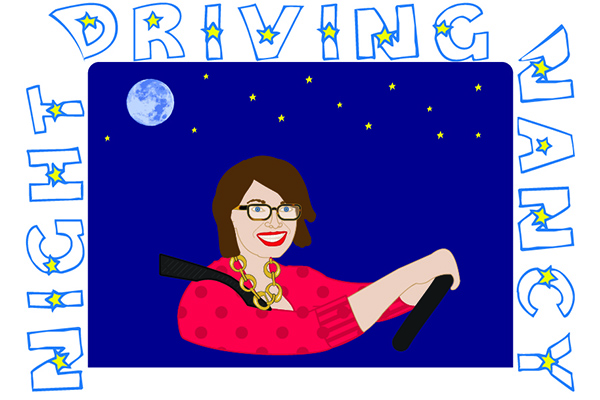What You Should Know About Dementia and Alzheimer’s, But Were Afraid To Ask!
I met Dr. Michael Serby about 35 years ago, when our toddler boys played together at the local playground. He did research in Alzheimer’s and had a practice in geriatric psychiatry, but those subjects were not uppermost in my mind at the time. Now they are, so I decided to ask Dr. Serby if he’d be willing to do an interview with me about his life’s work. I’m delighted he accepted my invitation, because so many of us have seen Alzheimer’s wreak a horrific toll on family and friends, and are frightened it will hit us, too.![]()

FabOverFifty: What happens to our minds as we age?
 Dr. Serby: “Some people have long-standing psychiatric problems that started when they were young, or younger, and have become more of a problem. Maybe the frequency of their problems increases. Maybe they don’t have the family they once had to help them.
Dr. Serby: “Some people have long-standing psychiatric problems that started when they were young, or younger, and have become more of a problem. Maybe the frequency of their problems increases. Maybe they don’t have the family they once had to help them.
“Many people have diminishing cognitive function as they get older, that may begin as early as their 50s, but I know one woman who is 106 and is as sharp as can be; not a sign of diminishing cognitive function. So it’s not age, per se, that’s responsible for the development of cognitive change. It’s just more common as you get older.”
How do you define many and what happens what exactly is diminishing cognitive function?
“The majority of people over 50, certainly over 60, will experience some change in their cognitive functioning. They can’t find the right word, for example. They’ll say ‘it’s on the tip of my tongue,’ this kind of thing. That’s considered normal.
“Your bones may change with age. Your joints may change with age. Your skin may change with age. Everything changes with age, but if there’s nothing pathological in those areas I mentioned, that’s great. Your memory for words also may show some change, but it’s not significant if it doesn’t affect your daily life, your functioning. You can continue to work as a lawyer or a writer. But some people panic as soon as they can’t think of a word. They’re looking for that first clue that they’re going to get Alzheimer’s. People are being evaluated in dementia centers all the time who are considered ‘normal.’”

How do you know when your ‘diminishing cognitive function’ is out of a range considered ‘normal’?
“You might have trouble planning, with language, with spatial skills.* It’s pretty noticeable, and gets in the way of your daily ability to function, but it hasn’t gotten to the point of dementia When this happens we call it Mild Cognitive Impairment (MCI).”
* Visual-spatial skills are critical for success in solving many tasks in everyday life, such as using a map to guide you through an unfamiliar city (pre-GPS); merging into high-speed traffic, and orienting yourself in your environment, as when you’re learning your way around a new office. Some tasks that require visual-spatial ability include packing for a trip (deciding if a certain box is large enough for the objects you want to put into it) and using mirror images (as when you comb your hair while looking into a mirror).
If you’re diagnosed with MCI, will you automatically get Alzheimer’s?
“About half of patients with MCI will go on to dementia, but many seem to hang there and continue (with MCI), maybe forever.”
Let’s say you and your husband have driven the same route to the mall, hundreds of times over the last 35 years, but one day he forgets which way to turn when you’re at the exit. Is this cause to worry?
“You shouldn’t hang your hat on one episode like that, because there are many possibilities that have nothing to do with dementia. Perhaps the husband didn’t sleep well the night before, and he had an isolated memory lapse; maybe a TIA is beginning, which is common in older people. (Note: A transient ischemic attack is a brief interruption of the blood supply to part of the brain that can result in confusion, temporary memory loss, sudden fatigue, difficulty speaking, vision changes, and poor balance. High blood pressure is a major cause of TIAs, but they also can be caused by issues including diabetes and high cholesterol, according to popular website healthline.com)
 “If this happens, and the person gets more confused that day, it would suggest that he be seen by a doctor. They might need to get cardiac and neurological exams.
“If this happens, and the person gets more confused that day, it would suggest that he be seen by a doctor. They might need to get cardiac and neurological exams.
“Alzheimer’s is very slow, but a wife who experiences an incident like you described might say to me: ‘I can tell you exactly when the Alzheimer’s started.’ That’s not true. It’s just when she noticed something because it was so clear cut. You can associate a stroke with a specific event, but not Alzheimer’s. Don’t make any assumptions without an evaluation.”









 Zeaxanthin
Zeaxanthin
 That’s why FabOverFifty is honored to partner with Humana health insurance to promote its
That’s why FabOverFifty is honored to partner with Humana health insurance to promote its 

